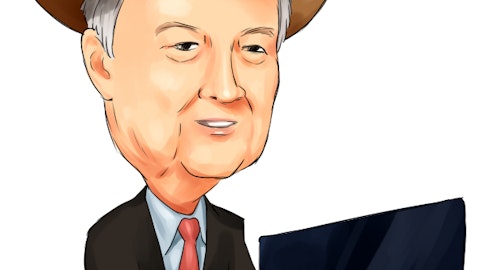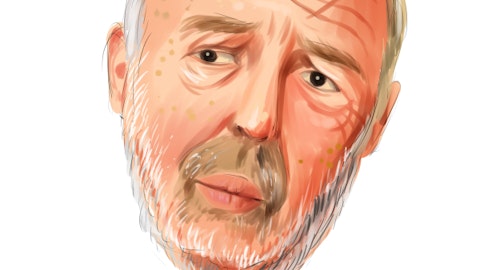PepsiCo, Inc. (NYSE:PEP) delivered stonger-than-expected results for its second quarter ending June 13, reporting net income attributable to the firm rising slightly to $1.98 billion, or $1.33 per share, compared to $1.98 billion, or $1.29 per share, in the year-ago quarter. Adjusted earnings was reported to be $1.32 per share, still above the consensus of $1.24 per share Wall Street was expecting. Net revenue decreased by 5.7% to $15.92 billion on foreign exchange headwinds, but still came in above the average analyst estimate of $15.80 billion, Pepsi reported that foreign exchange fluctuations led to a 10% dip in revenue overall. The firm’s strategy of adjusting prices to combat this worked, as its Americas beverages arm recorded a 1% increase in revenue to $5.34 billion, while Frito-Lay North America’s operating profit rose to $1.01 billion, a 7% increase. PepsiCo, Inc. (NYSE:PEP) shares jumped 2.59% to $98.12 in premarket trading.

focal point / Shutterstock.com
The positive results for PepsiCo, Inc. (NYSE:PEP) come after the firm experienced bullish hedge fund sentiment during the first quarter. The number of hedge funds with positions in the company increased by seven during the period, to 61, while the total value of their holdings increased by 11.83% to $8.02 billion by the end of March, from $7.17 billion at the end of 2014. The stock went up just 1.12% during the first quarter, showing that the majority of the increased holdings were through additional purchases by the smart money.
Why does Insider Monkey track hedge fund sentiment? Professional investors spend considerable time and money conducting due diligence on each company they invest in, which makes them the perfect investors to emulate. However, while Karp’s returns have been strong the past two years, we also know that the returns of hedge funds on the whole have not been good for several years, underperforming the market. We analyzed the historical stock picks of these investors and our research revealed that the small-cap picks of these funds performed far better than their large-cap picks, which is where most of their money is invested and why their performances as a whole have been poor. A portfolio of the 15 most popular small-cap stocks among funds outperformed the S&P 500 Total Return Index by 95 basis points per month between 1999 and 2012 in backtesting. The exceptional results of this strategy got even better in forward testing after the strategy went live at the end of August 2012. A portfolio consisting of the 15 most popular small-cap stock picks among the funds we track has returned more than 135% and beaten the market by more than 80 percentage points since then, and by 4.6 percentage points in the first quarter of this year (see the details).
In terms of insider trades, which signify whether management team members are confident in their own firm’s stock, PepsiCo did not have any recorded purchases this year. There were several sales of shares by insiders, however, the most recent and most notable of which was Chairman and Chief Executive Officer Indra Nooyi selling 58,054 shares on May 21.
Keeping this in mind, let’s review the recent action regarding PepsiCo, Inc.





